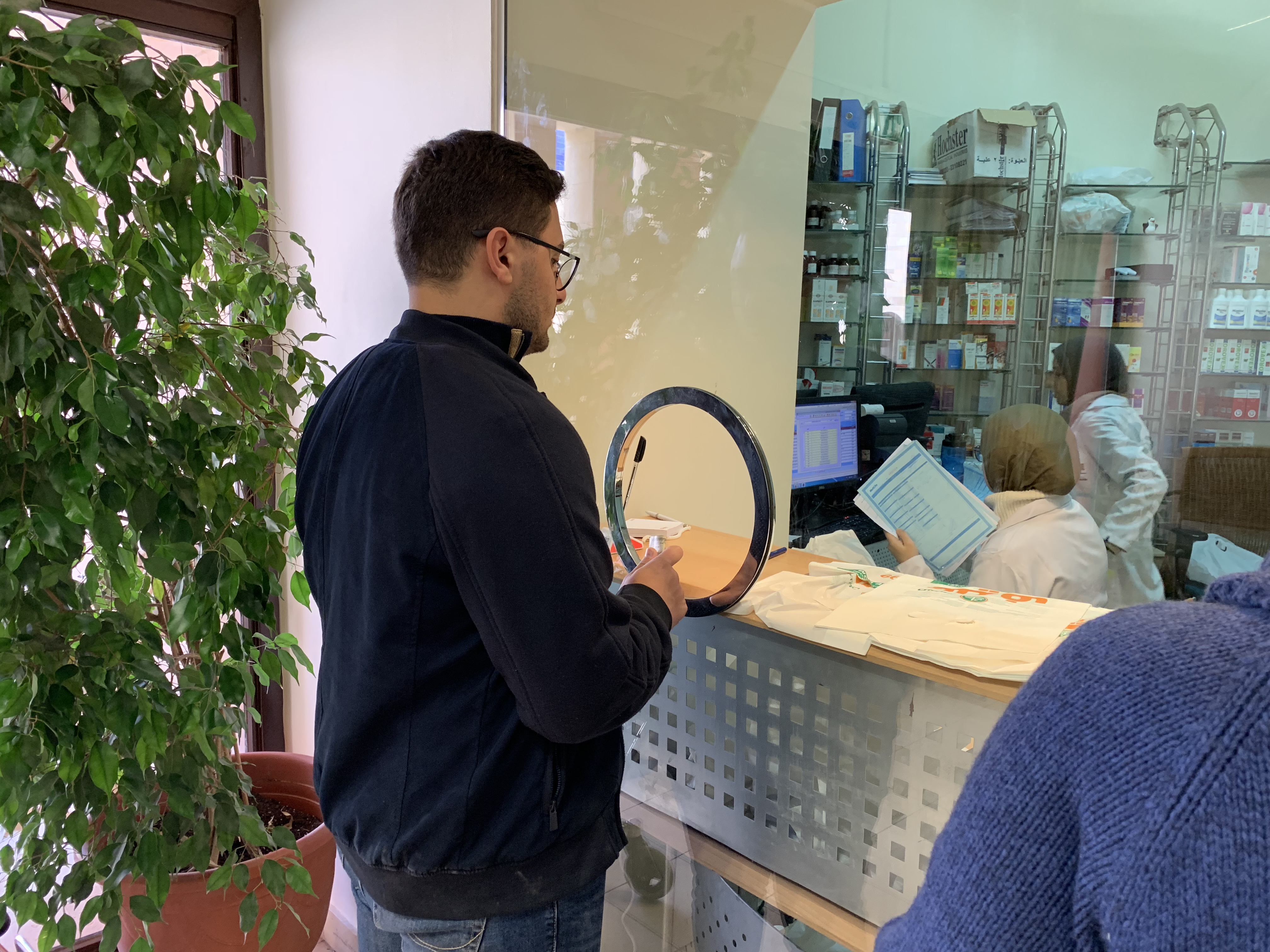Psychotherapy Until Proven Otherwise: Medication and Therapy on Campus
By: Nada AlNaggar
@NadaWahba10
On the day this reporter visited the AUC campus clinic, it was filled with patients looking to relieve one pain or the other. A girl waddles in, trembling; her eyes are watery and her shirt appears to have absorbed her sweat until it couldn’t.
She throws her body into one of the chairs and calls for help with barely a whisper. Doctors rush to her and nurses in the background repeat, “Inderal, get the Inderal!” She was having a panic attack.
The availability of psychiatric medication on campus has proven to be of great help for its students, especially in cases of emergency.
“Yes, I would need an anti-anxiety [medicine] to be available on campus to handle anxiety or panic attacks that might need to be tackled immediately. In this case, I might need medication to calm them down,” said Noha El Nahas, adjunct professor in the psychology department and a former senior counselor at the Office of Student Well-Being.
El Nahas explained how medication on campus is a boon because it saves the students the hassle of going out of their way and getting medication from another outlet which might not be as trustworthy or prudent, or where students may feel judged and stigmatized.
“Here, the process of getting medication is very straightforward. It’s a very easy transaction but you need to have a prescription issued by a psychiatrist,” President of the Psychology Association at AUC Khaled Salah El-Din told The Caravan.
He explained that even the walkway from the Student Well Being-Office to the clinic is secluded, which gives students a modicum of privacy.
The process of obtaining a prescription is itself meticulous and supervised by Adjunct Psychology Faculty Dr Ola Morsy, the current Director of the Office of Student Well-Being, and the only psychiatrist working there.
“Let us agree again that not everyone coming to counseling is going to take medication. The majority of the people working in the counseling center are psychologists, thus it is psychotherapy until proven otherwise,” said Morsy.
Morsy added that her Office focuses primarily on therapy.
Counselors may, however, resort to psychiatric medication only in very specific cases.
“Some of my colleagues are sometimes suspicious of symptoms that may need medication intervention,” Morsy said.
In such cases, students are monitored closely before a decision is taken to prescribe medication.
“Most of them (students) are drug naïve so we have to take it very slow. If we prescribe, we tailor the choice of medication according to the case,” she added.
But some students say that there is a social stigma associated with taking psychiatric medication, as well as fear from possible side effects and habituation.
El-Din believes that one of the reasons medication is stigmatized is the fear some parents have about discovering that their children are struggling with a mental health issue, and their refusal to accept that.
“Medication is an added thing on the side where it helps you accentuate the healing process and get better. It’s not something that develops into a habit, you just need supervision,” Salah El-Din said.
When asked if psychiatric medication is available on campus, Morsy pointed out that the very nature of the question is problematic because it separates psychiatric medication from other types of medicine; that divide gives room for the stigma to grow.
Exacerbating the problem is that few talk about the subject of therapy and counseling, and students are consequently unaware that psychiatric medication is available on campus.
“Some doctors love prescribing meds for no good reason, and that’s also one of the reasons which contribute to the stigma,” Morsy said.
Office of Student Well-Being staff have a completely different strategy when approaching psychiatric medication.
“We’re very careful when we prescribe medication. We do not prescribe anything that affects the cognitive function or the reaction time for ones who drive. We choose the medication according to the priority of the case,” said Morsy.
For its part, the pharmacy on campus collaborates with the Office of Student Well-Being in order to accomodate the needs of the student patients by restocking the most in demand anti-anxiety and antidepressant medicines, such as Inderal, Prozac, Seroquel, Cipralex and Seroxat.
The pharmacy also complies with the Office’s requests of supplying unavailable medication depending on the case being treated.
But one downside to psychiatric medication is their expensive prices, which might require insurance coverage.
“There is a small discount given here just because we’re on campus,” Pharmacist Kholoud Atef said.
Working at the pharmacy on campus for almost eight months now, Atef said that the process of obtaining psychiatric medication was easier with the old insurance plan covering it, but now that the plan has changed and it only covers up to EGP 1,000, the demand for medication has subsided.




